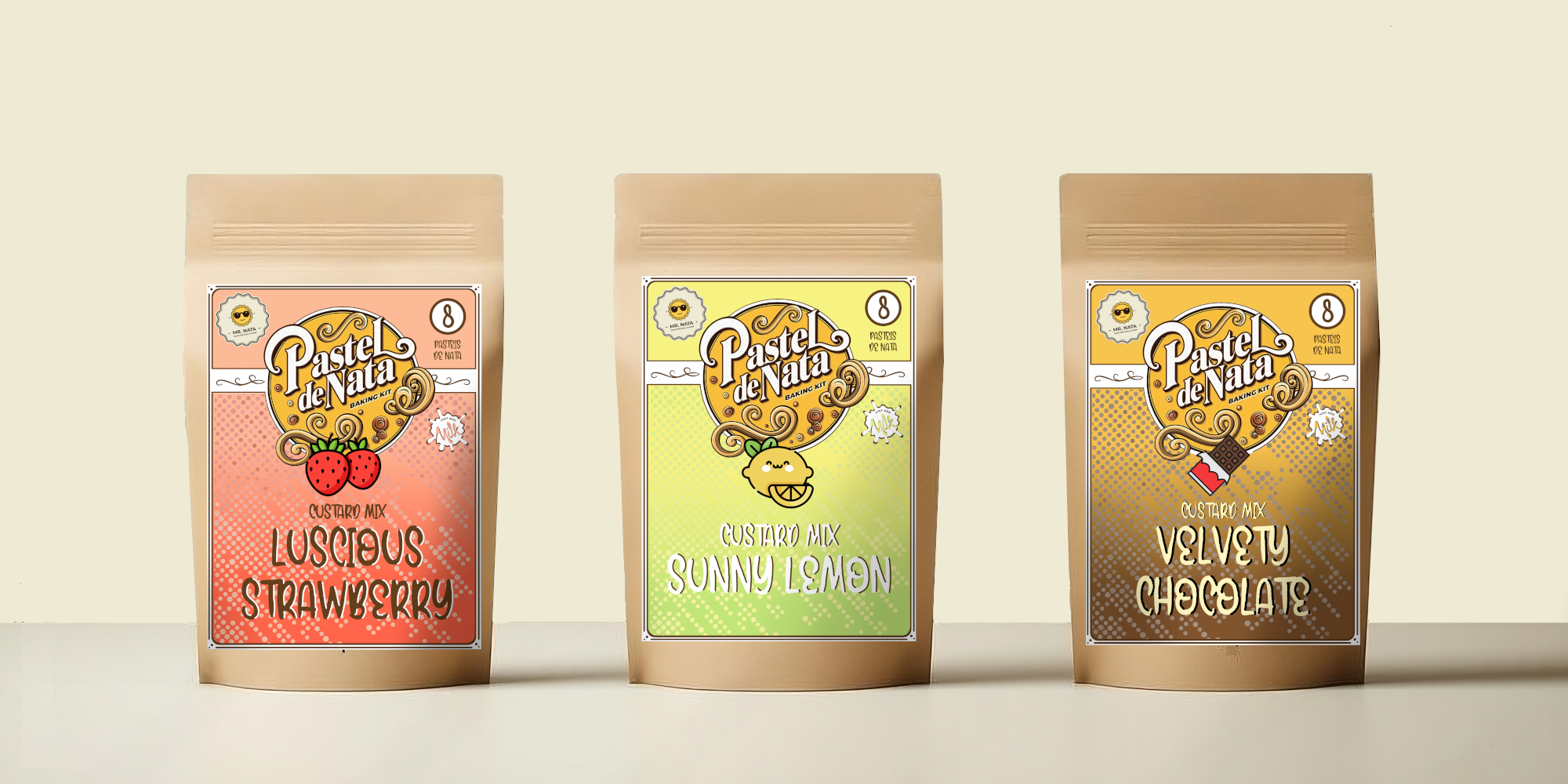Aluminium or silicone moulds: Which one to use for your Pastéis de Nata?
When it comes to making Pastéis de Nata at home, one of the most important decisions you’ll make is choosing the right mold. These delicious Portuguese custard tarts require specific molds to achieve their characteristic crispy crust and perfectly shaped pastry. But with so many options available, you might be wondering: Should you use aluminium or silicone molds? In this article, we’ll break down the pros and cons of each type and help you decide which is best for your baking.
Why the Right Mold Matters
Before we dive into the specifics, it's important to understand why the mold plays such a crucial role in making Pastéis de Nata. The traditional shallow, round molds are essential for achieving the right shape and ensuring the pastry bakes evenly.
A good mold helps to:
Distribute heat evenly, so your pastry is perfectly crispy on the outside while staying soft and delicate on the inside.
Create the authentic look and texture that makes Pastéis de Nata so unique.
Now, let’s explore the differences between aluminium and silicone molds.
Aluminium Molds: The Traditional Choice
Aluminium molds are the traditional option used by most Portuguese bakeries. They are typically made from aluminium and have a sturdy structure that holds its shape well during baking.
Pros of aluminium Molds:
Better heat distribution: aluminium conducts heat efficiently, ensuring that the pastry bakes evenly and becomes crispy on the outside while maintaining a soft, flaky texture on the inside.
Authentic results: If you're looking to replicate the authentic Pastéis de Nata experience, aluminium molds are the way to go. They help you achieve the golden-brown, crispy crust that is characteristic of this dessert.
Durability: aluminium molds are long-lasting and can handle high temperatures, making them a great investment for frequent bakers.
Cons of aluminium Molds:
Need for greasing: You’ll typically need to grease aluminium molds to prevent sticking, which adds an extra step to the process.
Heavier: Aluminium molds are heavier than silicone, which may be less convenient for some users.
Best For:
Those who want the most authentic Pastéis de Nata experience.
Bakers who prefer crispy, flaky pastry and don’t mind an extra step for greasing.
People who bake frequently and want a durable, long-lasting option.
Silicone Molds: The Convenient Alternative
Silicone molds are a modern, flexible option that many home bakers love. They’re made from food-grade silicone and offer a number of conveniences that aluminium molds don’t provide.
Pros of Silicone Molds:
Non-stick: Silicone molds are naturally non-stick, so you don’t need to grease them, making the baking process a bit easier.
Flexible and lightweight: Silicone molds are much lighter than aluminium, and their flexibility makes it easy to pop out the tarts without damaging their shape.
Easy to clean: Silicone is very easy to wash, either by hand or in the dishwasher.
Cons of Silicone Molds:
Less crispy results: Silicone doesn’t conduct heat as efficiently as aluminium, meaning your pastry might not get as crispy as it would in a aluminium mold.
Shape retention: Because silicone is flexible, it may not hold the shape of the tarts as well as aluminium molds do. This could result in less even baking.
Best For:
Home bakers who prioritize convenience and want a non-stick, easy-to-clean option.
Those who are less concerned about achieving perfect crispiness and prefer an easier cleanup process.
Which One Should You Choose?
Ultimately, the choice between aluminium and silicone molds depends on your baking priorities:
If you want authentic Pastéis de Nata with a crispy, golden crust and you’re willing to put in a bit more effort (greasing and cleaning), then aluminium molds are the best choice. They offer superior heat distribution and durability.
If you prefer convenience and an easier cleanup process, and you’re okay with sacrificing a bit of crispiness, then silicone molds might be more your style. They’re perfect for beginners or occasional bakers who want a simpler process.
The Mr Nata Kit: The Best of Both Worlds
At Mr Nata, we understand that every baker has different needs, which is why our Pastéis de Nata kit includes high-quality aluminium molds. These molds are specifically designed to give you the authentic results you’d expect from a traditional Portuguese bakery, ensuring that your tarts have that perfect crispy exterior and soft, creamy filling.
If you’re looking for the complete solution to making authentic Pastéis de Nata at home, our kit provides everything you need—from the custard mix to the aluminium molds—so you can create bakery-quality tarts with ease.
Choosing between aluminium and silicone molds ultimately comes down to your personal preferences and baking style. If you’re serious about achieving the authentic Pastéis de Nata experience with the perfect crispy crust, aluminium molds are the way to go. For those who prioritize convenience and easy cleanup, silicone molds offer a simple alternative, though the results may not be quite as crispy.
No matter which option you choose, Mr Nata has the tools and resources you need to make your baking experience a success. Ready to get started? Order your Mr Nata Kit today and start baking authentic Pastéis de Nata at home!






